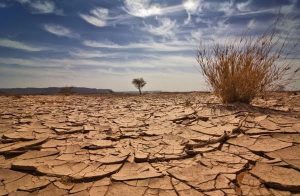Different strokes for different folks? Hours after the Renewable Energy Association of Nigeria (REAN) picked on Nigeria’s exorbitant charges on imported solar power components which it said could derail the country’s growing solar power market, a private firm – SoftBank Group Corp’s Vision Fund has announced it would invest in and build a 200 gigawatts (GW) solar power plant in Saudi Arabia.
SoftBank Group Corp’s Vision Fund, according to Aljazeera news, said on Tuesday that it will invest in creating the world’s biggest solar power project in Saudi Arabia, in clear response to the Kingdom’s gradual embrace of clean energy sources.
It explained the project is expected to have the capacity to produce up to 200GW by 2030 – the same year Nigeria expects to have 30 per cent of her electricity consumption come from renewable energy source including solar.
According to SoftBank Chief Executive, Masayoshi Son, in New York, the final investment total for the 200GW of generation, including the solar panels, battery storage and a manufacturing facility for panels in Saudi Arabia, will eventually total cost around $200 billion.
Son said the initial phase of the project, for 7.2GW (7200 megawatts) of solar capacity, will cost $5 billion, with $1 billion coming from SoftBank’s Vision Fund and the rest from project financing.
It is understood that Saudi Arabia generates most of its electricity from oil-fired power plants which is about 60GW, despite being one of the world’s sunniest countries like Nigeria.
However, adding 200GW to its existing capacity would create enormous excess capacity that could be exported to neighbours or used by her industry.
The report noted that around 300,000 to 800,000 barrels per day of crude oil are burned for Saudi power generation, and that exporting that oil could increase Saudi’s annual oil revenues by between $7 billion and $20 billion, at the current price of almost $70 per barrel if the solar plant is built.
“Saudi Arabia is clearly preparing for a post-fossil fuel dependent economy in terms of domestic energy consumption, and this huge bet on renewables would free up a lot of domestic output of oil for exports, while probably saving domestic gas resources as well,” the report quoted Peter Kiernan, lead energy analyst at the Economist Intelligence Unit in Singapore to have said.
Kiernan added that: “Up until now, progress in building solar capacity in the kingdom has been very slow, but this deal might give it the kick start it needs. But 200GW by 2030 though, that’s another question.”
Notwithstanding, Softbank said last May that it raised over $93 billion for the Vision Fund, the world’s largest private equity fund with backers including Saudi Arabia’s sovereign wealth fund, Apple Inc and Foxconn, formally known as Hon Hai Precision Industry.
It explained the Vision Fund has funnelled $27.5 billion into 20 tech firms as of the end of December, transforming SoftBank from a Japanese telecoms upstart into one of the world’s biggest technology investors.
Also, the Saudi investment is Softbank’s second major global solar project. It said it will invest up to $20 billion along with Foxconn and Bharti Enterprises in solar projects in India, which has an ambitious target to generate 100GW of power from solar by 2022.
A different stroke in Nigeria
On the other hand, Nigeria which is also an oil producer, but well below Saudi Arabia’s production mark, was accused on Tuesday by REAN of introducing excessive import duties on solar power parts, a development it said could slow down the pace of solar power market growth in the country.
REAN, an industry pressure group set up in 2016 to push for broader adoption and deployment of renewable energy sources to cut down the country’s energy poverty, said in Lagos that Nigeria could miss its 2030 target of having up to 30 per cent renewable energy contribution to her power mix on account of arbitrary charges allegedly levied on imported solar power photovoltaic (PV) parts by Nigeria’s Customs authorities.
The association noted that the port levies by the Customs have continued to deny Nigeria the benefits from a stable fall in costs of solar power components whereas other African countries with favourable customs levy have benefitted from this drastic cost reductions.
According to it the Customs forces its members to pay between 5 per cent and 10 per cent import duty on solar panels. REAN warned that such high duty rates could escalate the cost of acquiring solar power in Nigeria.





